VINNETTE JUSTINE CARROLL
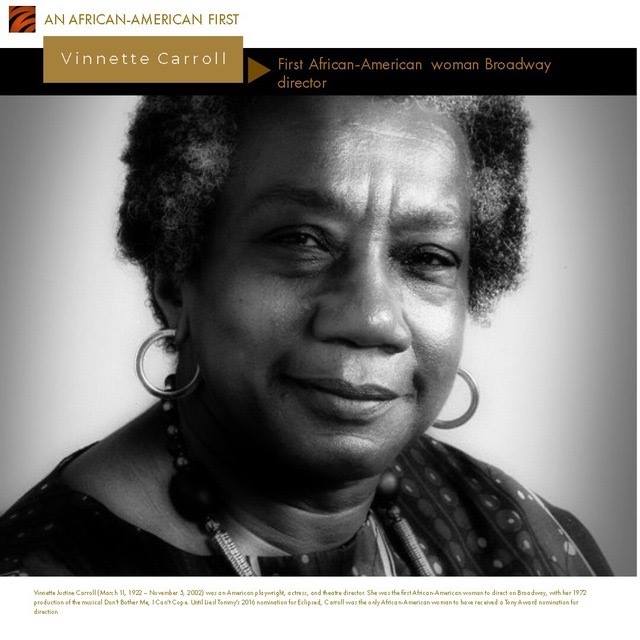
“We still need Black theatre. But I think we need to show Black people just living, just trying to get through the world with the problems other people have.”
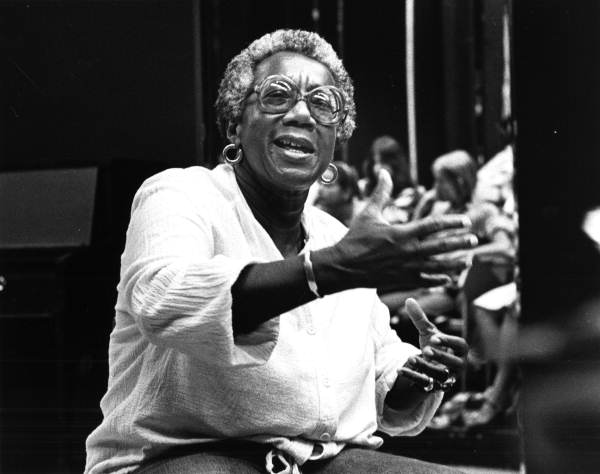
American Playwright/Director/Actress
1922 – 2002
by
Dale Ricardo Shields
Vinnette Carroll Ph.D. was born on March 11, 1922, to Edgar and Florence Morris Carroll. Dr. Edgar Carroll was a dentist and her mother Florence was head of the local dental auxiliary society and a school teacher. Vinnette received a B.A. from Long Island University in 1944; and an M.A. from New York University in 1946, followed by her doctoral work in psychology at Columbia University. As a means of securing their future, Ms. Carroll’s parents frowned upon acting as a career and encouraged their three daughters to become physicians, but Vinnette had a problem with the sight of blood. So, to appease her dad, she chose psychology.
Prior to beginning her acting career, Ms. Carroll worked as a clinical psychologist with the NYC Bureau of Child Guidance by day and studied acting with Lee Strasberg, Stella Adler, and other greats by night. Ultimately, Vinnette Carroll became who she wanted to be and I must give her credit for living an authentic life.
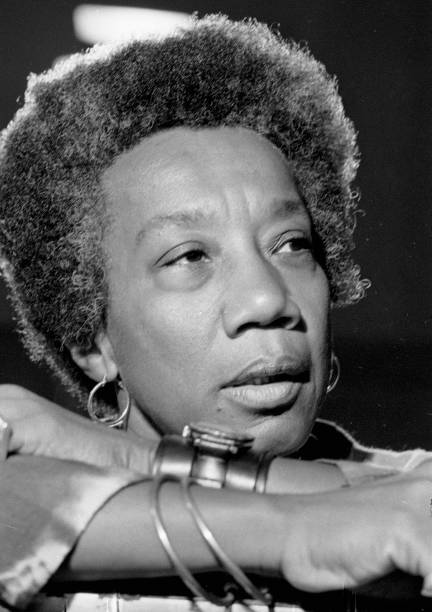
Urban Arts Director Vinnette Justine Carroll, photographed in July 1971. (Photo by Jack Mitchell/Getty Images)
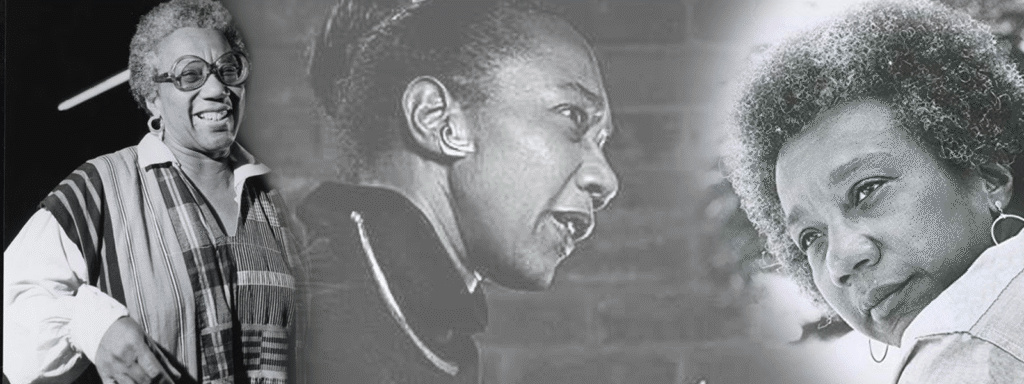
Vinnette Carroll’s legacy in American theater includes her contributions as an African American director, actress, playwright, and educator
. She fostered opportunities for minority artists and enriched the theatrical landscape with innovative work drawing from Black culture.
- Breaking Barriers as a Black Woman Director: Carroll was the first African American woman to direct on Broadway, with her 1972 production of Don’t Bother Me, I Can’t Cope. This opened doors for other Black female directors in a historically male-dominated industry.
- Elevating Black Voices and Stories: Carroll advocated for Black theater and challenged stereotypes through her work. She created and directed new works that presented people of color in positive and artistic ways. Her focus was on giving voice to marginalized communities.
- Pioneering “Gospel Song-Play”: Carroll developed “the gospel song-play,” which blended theatrical forms with African American culture, incorporating gospel music and dance. This approach brought a new dimension to American theater. Your Arms Too Short to Box with God exemplifies this genre.
- Founding and Leading the Urban Arts Corps: In 1967, Carroll established the Urban Arts Corps to provide training and development for minority artists. The organization produced over 100 plays, nurturing emerging playwrights and showcasing their works. It created opportunities for minority performers in a mainstream theater environment.
- Nurturing and Influencing Future Generations: Carroll fostered the careers of many Black artists. Her work laid the foundation for playwrights such as Ntozake Shange, Charles Fuller, and August Wilson. The Vinnette Carroll Repertory Company furthered her legacy.
- Receiving Significant Recognition: Carroll was nominated for a Tony Award and received an Obie Award. Her achievements demonstrate the artistic merit she earned.
Ever resourceful, she knew that there was a shortage of available roles for Black women, she created a one-woman show consisting of poetry and monologues from the classics, touring the United States, England, and the West Indies for several years. She was also a woman of “firsts” In addition to being the first female African American Director on Broadway, she was also the first African American to appear in a week-long television show and appeared in such movies as Up The Down Staircase, and other theatricals and television specials.
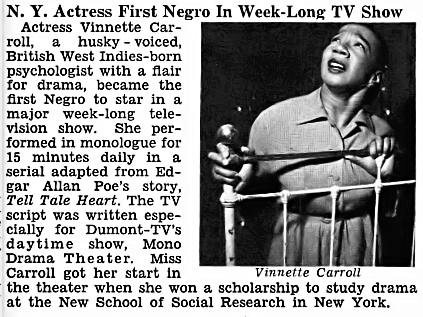
Beginning in 1953, Ms. Carroll taught theater arts and directed productions as a member of the faculty of the High School of Performing Arts in New York City for eleven years.
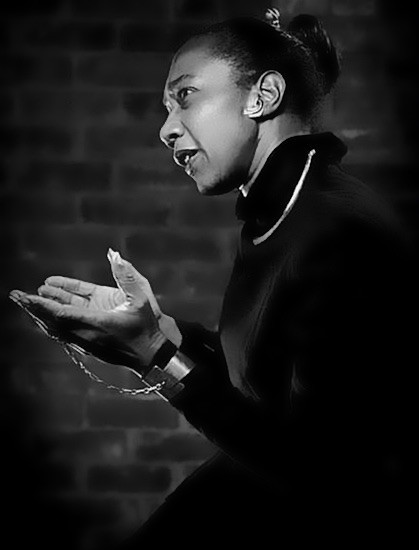
The Urban Arts Corps was founded by Ms. Carroll in 1967 in lower Manhattan near The Village at 26 W. 20th Street. Out of this marvelous Theatrical organization great plays such as Don’t Bother Me, I Can’t Cope, Your Arm’s Too Short To Box With GOD, But Never Jam Today and other plays and musicals were born.
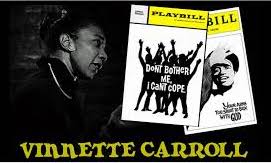
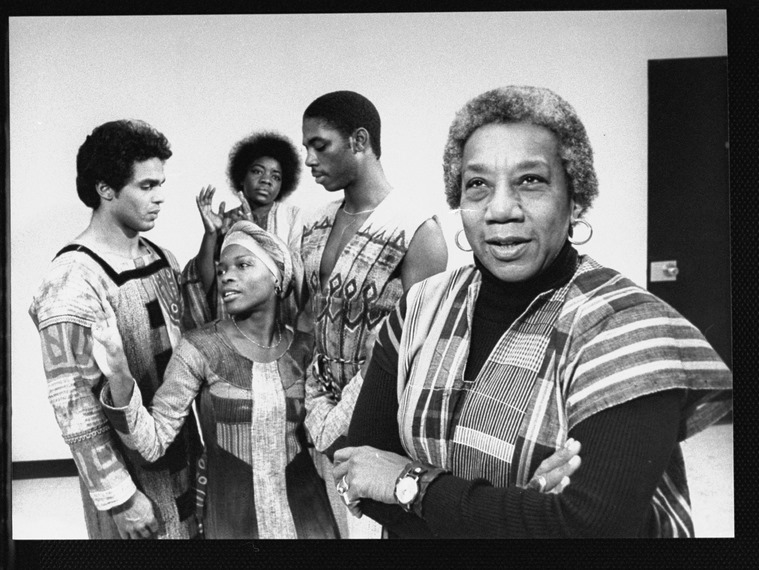
Director Vinnette Carroll (1922-2002) in rehearsal for a revival of her musical YOUR ARMS TOO SHORT TO BOX WITH GOD, 1982. Ms. Carroll received Tony nominations for the book of this musical, as well as her direction in 1977, as well as a Tony nomination for her direction of DON’T BOTHER ME, I CAN’T COPE. Carroll was the founder of the Urban Arts Corp, which supported Black and Hispanic performers and theatres. Carroll appeared in the 1956 revival of Tennessee Williams’ A STREETCAR NAMED DESIRE that starred Tallulah Bankhead, and she and the playwright remained in admiring contact until his death in 1983.
